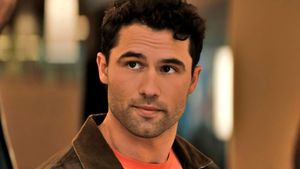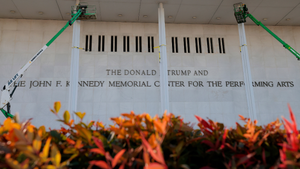Hillary Rodham
Clinton looked to a debate Wednesday in the key primary
state of Pennsylvania to help salvage her long-shot hopes of
defeating Barack Obama for the Democratic presidential
nomination.
Obama's campaign
has struggled in the past week as he has had to
repeatedly explain remarks considered derogatory to
Pennsylvania's working-class voters -- an important
bloc in a contest taking place next Tuesday. But a
recent poll shows him with an 11-percentage-point lead
over Clinton among Democrats nationwide and, more
importantly, a solid lead in delegates who will choose
the nominee at the party's convention in August.
Obama leads
Clinton in delegates 1,640-1,504, with only 10 contests
remaining after Pennsylvania, the largest state still to
vote. A big Clinton win in Pennsylvania would do
little to narrow Obama's advantage, but it would keep
her campaign alive.
Democrats fear
that a long primary season and the candidates' harsh
criticism of each other could damage the party's chance's of
defeating Republican John McCain in the November
election.
The former first
lady has labeled Obama an elitist for remarks he made
about bitterness among economically hard-pressed working
class voters. The first-term Illinois senator has
countered with charges that Clinton was pandering by
drinking a shot of whiskey in front of TV cameras and
with stories of learning to shoot a gun at her father's
knee.
Obama got a boost
ahead of the Pennsylvania primary with the endorsement
of the Pittsburgh Post-Gazette on Wednesday.
The western Pennsylvania city's largest newspaper said he
brings ''an excitement and an electricity to American
politics not seen since the days of John F. Kennedy.''
However, it said either Obama or Clinton would
represent a welcome change from President George W. Bush.
Clinton was
leading among Pennsylvania voters 46% to Obama's 40%,
according a poll released Wednesday that had a margin of
error of 5.1 percentage points. Her lead was narrower
than in March when the same poll by Franklin &
Marshal College showed her ahead by 16 points, 51% to
35%. The latest poll was conducted April 8-13 among 367
likely Democratic voters.
Because
Democratic state contests are not winner-take-all in terms
of delegates, it is extremely unlikely that Clinton
could overcome Obama's lead in the elected delegate
count.
Neither candidate
will be able to clinch the 2,025 delegates needed to
win the nomination without the approval of the party's
nearly 800 superdelegates -- elected officials and
party insiders who can vote for whichever candidate
they want at the party's convention. Of the
superdelegates, 254 have said they back Clinton, and 226 are
supporting Obama. His overall delegate lead includes
the committed superdelegates.
Clinton faced
further challenges as a new national poll showed that more
Americans have an unfavorable view of her than at any time
since 1992, when her husband was elected to his first
term.
Fifty-four
percent said they have an unfavorable view of Clinton, up
from 40% after she won the New Hampshire primary in
early January, according to the Washington Post-ABC
News poll. The survey, which has a margin of error of
plus or minus three percentage points, found Obama's ratings
also had dropped but remained more positive than negative.
In Pennsylvania
on Tuesday, Obama dismissed a voter's suggestion that
Clinton, when she called him elitist, had ''bordered on
[calling him] uppity.''
''It's
politics,'' Obama, who aims to become the country's first
black president, said at a town-hall meeting. ''This
is what we do politically, when we start getting
behind in races. We start going on the attack.''
Clinton,
meanwhile, was jolted with a fresh reminder that party
elders have no appetite for a campaign that drags into
the convention in late August. Democrat
congressman Barney Frank, a Clinton supporter who
is also a superdelegate, said the candidate who trails in
the delegate chase should quit by June 3. ''Probably
sooner,'' he told the Associated Press in an
interview.
Clinton on
Tuesday spoke to newspaper editors at their annual
convention, sketching an agenda for her first 100 days
in office that includes the beginning of a troop
withdrawal from Iraq and submitting a budget to
Congress that rolls back some of Bush's tax cuts.
Obama and McCain
spoke at the convention Monday.
On Wednesday,
Clinton was to speak at a conference of the labor
federation AFL-CIO's Building and Construction Trades
Department in Washington before going to Philadelphia
for the debate. Earlier in the day, she won the
endorsement of a union representing plasterers and
cement masons, the 45,000-member Operative Plasterers' and
Cement Masons' International Association.
McCain plans to
hold a summit on the economy in Milwaukee on Wednesday.
On Tuesday he discussed his economic proposals in a broad
speech in Pittsburgh, which included tax cuts and
long-term plans to help the middle class and eliminate
wasteful spending. (AP)




































































Charlie Kirk DID say stoning gay people was the 'perfect law' — and these other heinous quotes